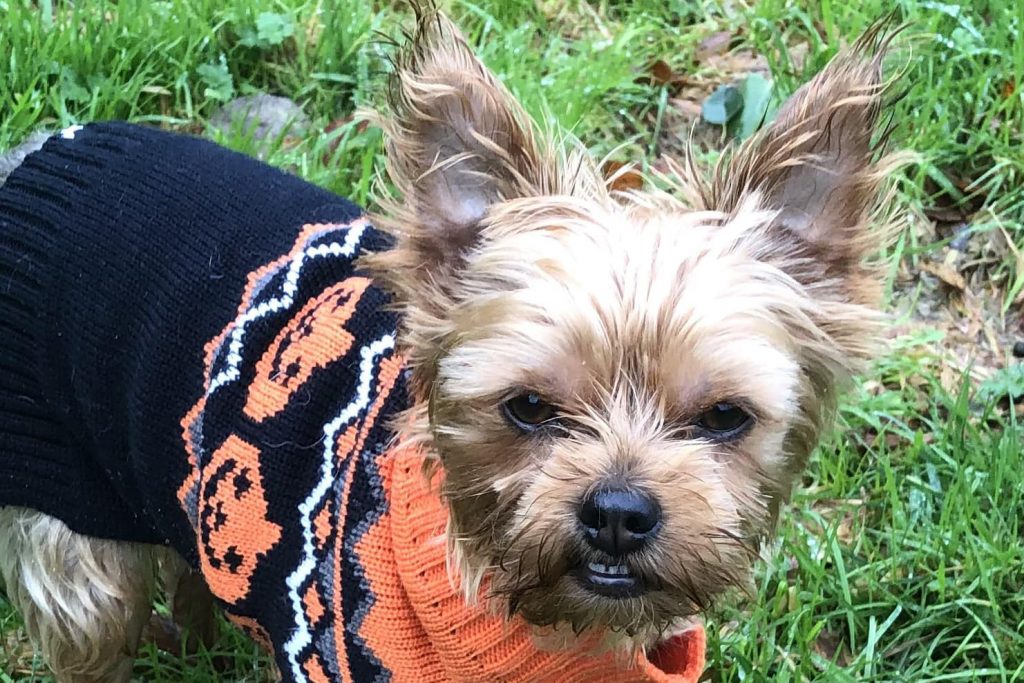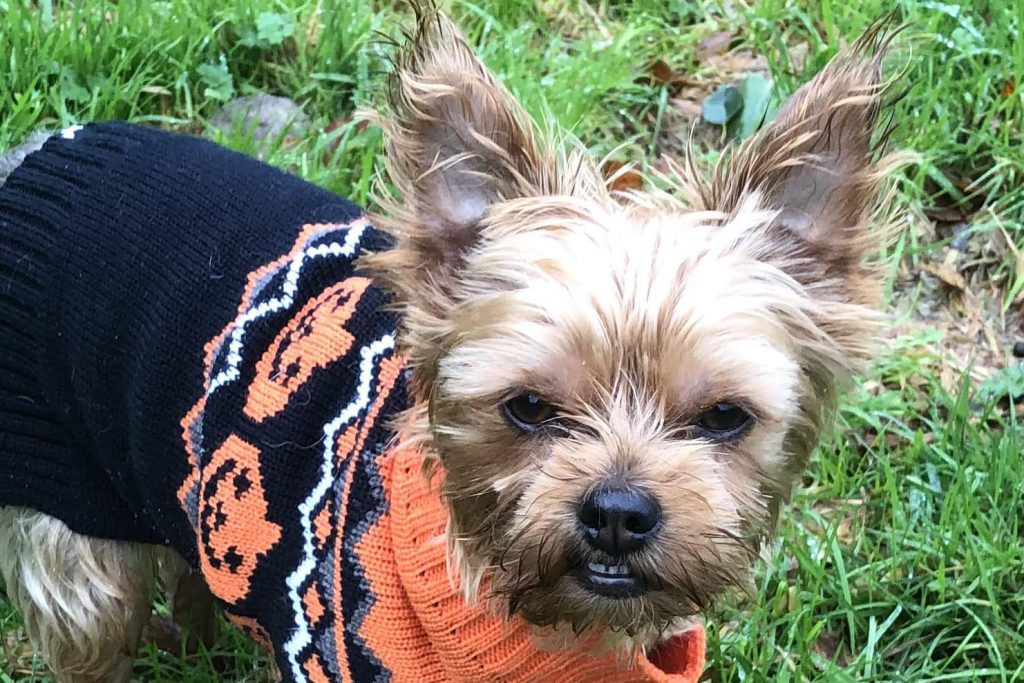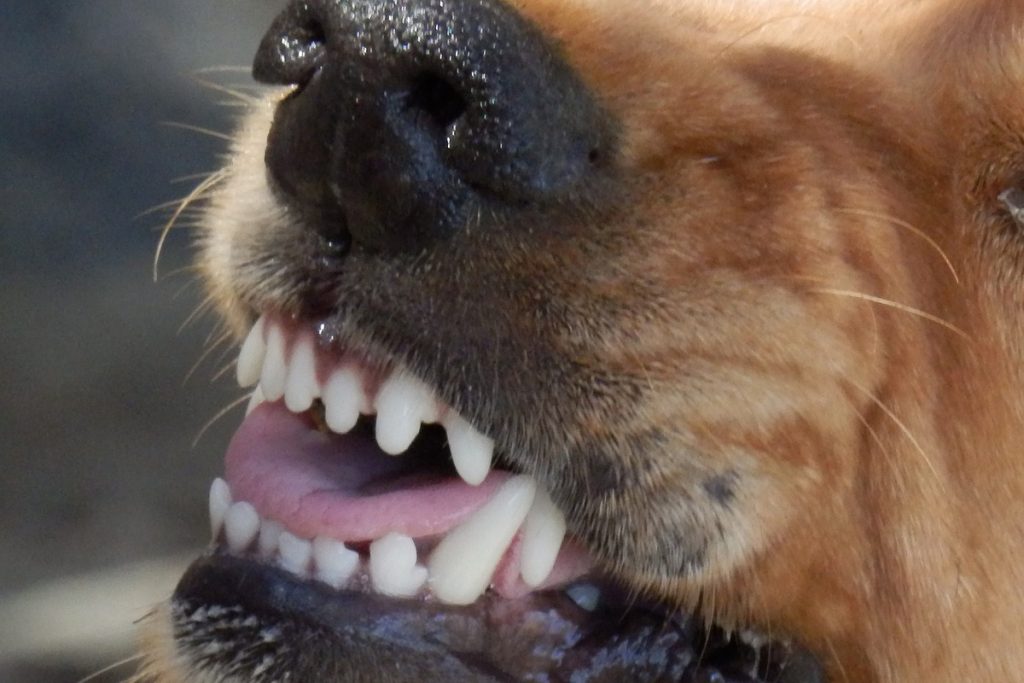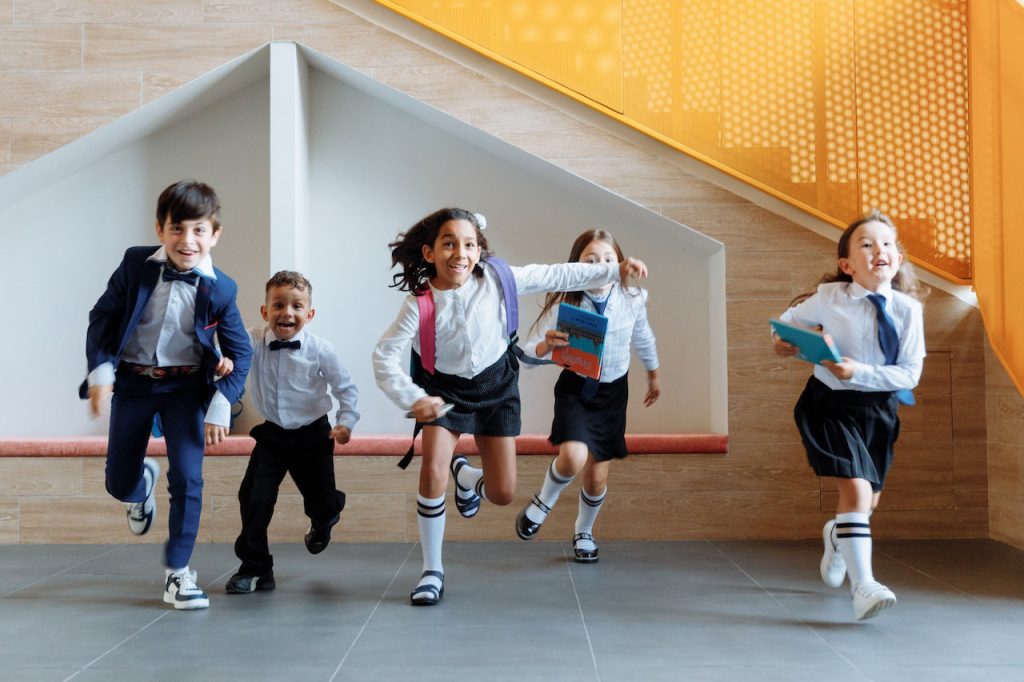
People often think of very small dogs as being anxious and reactive; to be honest, quite a few are. It’s easy for people to ‘blame the owners’ or say that they have ‘little dog syndrome’ or even that they are ‘bossy’ Really though, we need to understand what life is like for tiny dogs.
Tiny dogs often don’t have much control over their lives; they can be picked up easily (even if they don’t want to be) and they can be made to do stuff; people notice if a 40kg dog is worried about going into a busy park or a cafe and plants their feet and refuses to move but with a tiny dog, you can just make them do it even if they don’t want to.
Tiny dogs often get overwhelmed before they’ve even got through puppyhood, big dogs may run up and knock them over, lots of hands reach down to touch them and yes, there it is again, strangers may also pick them up (whether they like it or not). Physically they may be delicate (my Yorkie’s legs are made from matchsticks) and may be hurt accidentally during normal dog interactions. Everything is big and potentially scary when you weigh a couple of Kg and are about 8 inches tall. The world can be a scary and overwhelming place. It’s easy to see then why so many littlies end up worried by the world and particularly by other dogs.
Tiny dogs’ signals that they need space are also ignored often; people take notice of a GSD showing its teeth or growling and give them space but many people would laugh or totally ignore a tiny dog’s identical communication asking for space. It’s not rocket science that they may then escalate to actually biting – and they get called ‘snappy little dogs’ and again, misunderstood.
Small dogs can often miss out on having their species-specific needs met: their need for exploratory behaviour, for social contact; their need for enrichment and physical exercise too and this impacts them and their ability to cope.
Small dogs are still proper dogs!
I’ve been really lucky with my hand-reared Yorkie, she’s fabulous with people and absolutely loves dogs but it’s been a bit of a mission to make sure things have gone right. I haven’t socialised her, in the same way, I have my other dogs; I’ve let her meet loads of dogs, but I’ve been really careful and it’s been almost all onlead and with dogs I know will be nice to her. We frequent loads of national trust places as she can meet lots of sociable dogs there who are all under control. The last thing I wanted was for her to be really scared by another dog or physically hurt (she has deformed back legs that put her at huge risk of injury). She goes to offlead places too, but generally with one of my big dogs there too (she has big bodyguards).
I’ve had to make adjustments to life to keep her safe and make sure she has a happy life and that she doesn’t become reactive. It’s been worth it as she has stayed so sociable (but as an adult she loves small dogs best). If I’d just walked her where I walked my big dogs all the time I would think that by now she would have been flattened or overwhelmed and may have become dog reactive. It’s totally understandable why so many tiny dogs are fearful.
My tiny dog also wouldn’t have had enough repeated, safe and positive controlled interactions with friendly dogs right throughout adolescence if I hadn’t carried on with all the cafe/pub/NT visits and that would have been detrimental. It’s not enough to just do this stuff when they are tiny puppies and then stop at 14 weeks old as adolescence is when it can often all start to go wrong. (It’s also a good justification for my many pub and cafe visits with Twig).
We can’t forget the impact of genetics too and that’s a factor in why many small dogs are reactive; some genes for small body size are linked to fearfulness and reactivity and there may also be epigenetic factors too.
We can all be a bit more understanding too with small dogs and their owners. Don’t berate them for picking their dogs up if that’s what makes their dog feel safe- it won’t be what’s caused their anxiety and it might be what they need to feel safe right now. Don’t let your dogs overwhelm them (even in a friendly way). You’d also think it’s common sense to not pick strangers’ small dogs up without asking but people try to do it all the time.
We have lots of anxious tiny dogs who absolutely thrive in our reactivity classes, we can keep them safe and make sure they aren’t overwhelmed and also help them to feel more confident around other dogs again.
Copyrighted content by Laura McAuliffe, Dog Communication. If you like my posts, please share them using the share button. Please don’t copy and paste or edit my images. Sharing my posts allows me to reach more people and share the message.


